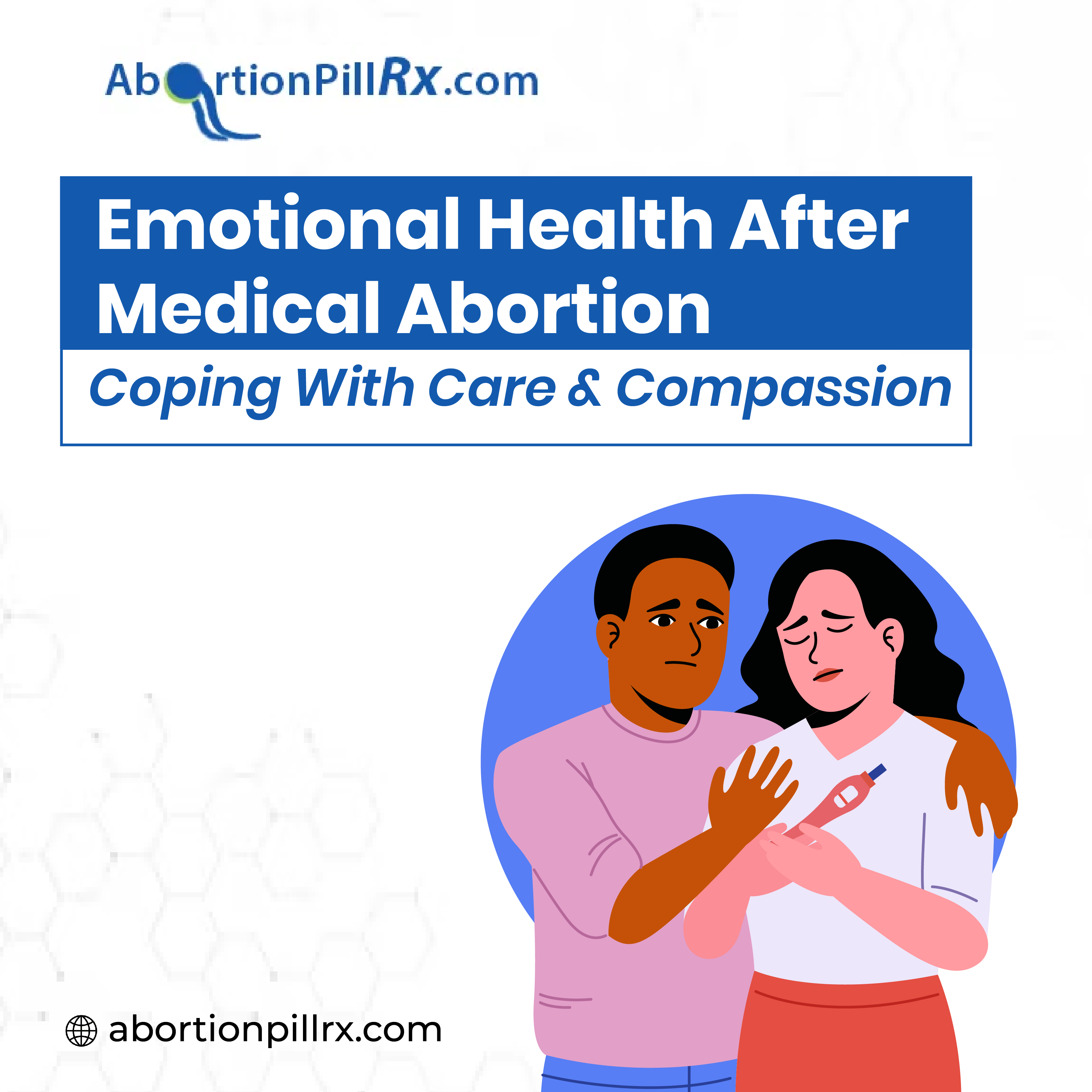Medical abortion can be felt in two ways, physically and emotionally. The physical symptoms take a few days to fade away, but the emotional journey continues.
Accepting what you feel and knowing you are not alone can provide solace. With this blog, we will explore the realness of emotional health after medical abortion, how to perceive usual emotional responses, and when to seek help.
Understanding Emotional Health After a Medical Abortion
The display of emotional outbreak is not the same for everyone after an abortion. While relief is a common reaction for most people, some struggle with guilt, sadness, grief and a feeling of loss. For some, these feelings come all at once.
Common Emotional Reactions
- Relief: When the pregnancy was unwanted and causing stress
- Guilt or shame: Often triggered by personal values or outside opinions
- Sadness or grief: This often comes when the decision is tough to make
- Fear: About the abortion process or future consequences
- Mood Swings: Sudden shifts due to hormonal changes after abortion
These are common after medical abortion and are short-lived. Yet, they deserve care and attention.
How to Manage Anxiety After Abortion and Cope Emotionally
Coping emotionally post abortion is not easy and takes time and intention. Doing this can help you cope:
- Acknowledge your emotions: It's okay to cry it out, talk with someone you trust and love, or just take some time for yourself.
- Talk to someone you trust: A close pal or loved one can offer the support and understanding you need during this time.
- Post-abortion counselling: Professional therapies are a great way to cope with the emotional reactions efficiently and healthily.
- Self-care practices: Relax your mind and body a bit or do something you enjoy. Take gentle walks, listen to your favorite music, journal, or do art.
- Avoid triggers: Some things are emotionally disturbing. It's okay if you feel like avoiding a person, talks, or things that make you feel overwhelmed right now.
While your physical health matters, it’s important to heal emotionally.
How Long Does It Take to Recover from a Medical Abortion?
For physical recovery, the majority of people take a week or two. However, to recover emotionally, the timing can vary. Some recover within a week or two, and some need more time.
Remember, do not compare your timeline to somebody else’s. We are made different, and we feel different. Your experience is your own.
These factors can affect your emotional recovery:
- Whether you received the pre-abortion counselling or not
- Your support system
- Personal values and beliefs you live by
- History of mental health after abortion or before
If your emotions still feel heavy after a few weeks, consider reaching out to a counselor for extra support.
Long-Term Emotional Side Effects of Medical Abortion
More often, your emotional state gets back to normal and doesn’t become long-term. However, if the abortion was trauma-induced or unsupported, it leaves emotional scars.
The possible long-term emotional effects include:
- Depression after abortion
- Trouble connecting in future pregnancies
- Over time, the guilt and shame resurface
These cases are rare because medical abortion is not a hasty decision; it’s taken with careful thinking and consideration. Making a difficult decision does not mean you made the wrong choice. If needed, you can opt for post-counselling or therapy to prevent long-term emotional turmoil.
Why Do I Feel So Depressed After an Abortion? Is It Normal?
Feeling depressed is common after an abortion. Aspects like hormonal changes, societal stigma, or unresolved feelings contribute to this.
Ask yourself:
- Did I feel pressured?
- Was the decision difficult for me emotionally?
- Am I getting enough support?
If you answered yes to any of these, your emotions are understandable. Even if the decision felt right, it can still bring up sadness or loss.
What can help:
- Pre-abortion counselling or post-abortion counselling can help
- Practice daily self-kindness.
- Avoid self-blame or replaying "what ifs."
- Connect online or with local support groups for post-abortion healing.
Just remember this: depression after abortion is treatable. Don’t hesitate to reach out.
How to Deal with Grief After an Abortion?
Grief is not only confined to death. Losing a pregnancy, even if it was unplanned or unwanted, can still cause pain.
This is how you can deal with it:
- Name your grief: Acknowledge the grief without judgment
- Write it down: A letter to pregnancy, yourself, or your future self
- Make space for rituals: By lighting a candle, planting a tree, or doing anything symbolic to acknowledge your emotions.
- Take therapies: One who has experience with post-abortion counselling.
MythBusters: Emotional Health After Abortion
Myth 1: Everyone regrets having an abortion.
Truth: Many people feel relieved. Regret isn't universal. Mixed feelings are more common.
Myth 2: Abortion always causes mental health problems.
Truth: There is no medical evidence that abortion causes long-term psychological harm in people who don't already have mental health issues.
The Conclusion
Struggling with emotional resilience after a medical abortion is known to many women. Many do feel mixed emotions after an abortion, but have come out stronger after. So whether you feel sadness, grief, guilt, relief, confusion, or a mix of everything, you are not alone.
Give yourself time to heal and feel, and do not hesitate to ask for help. Emotional peace is just as important as physical recovery.


